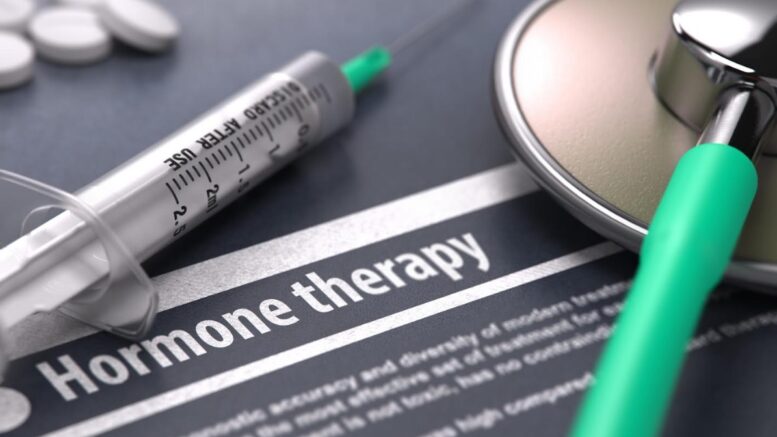In modern times, a range of health issues, such as menopause-related discomfort to fertility issues, has been disrupting the well-being of women all around the world. Amidst these concerns, hormone therapy has emerged as a groundbreaking solution.
The treatment addresses the issues with comprehensive care that goes beyond the conventional treatment methods. In this article, we go through the benefits of hormone therapy for females. So if you are curious about this method of treatment, keep reading.
What is Hormone Therapy?
Hormone therapy, or hormone replacement therapy (HRT), is a medical procedure used to treat hormonal imbalances or deficiencies in the body. Hormone therapy for females has grabbed much attention in recent years due to its potential to help relieve a range of medical problems.
It entails introducing external hormones into the system, such as estrogen and progesterone, in order to restore balance and alleviate various health issues.
Hormone therapy is administered under medical supervision and can take the form of oral pills, patches, creams, gels, or injections.
The method chosen is determined by the patient’s condition and preferences. These hormones closely mimic the body’s natural hormonal functions, allowing them to effectively manage symptoms.
Benefits of Hormone Therapy for Women
The benefits of hormone therapy can range from managing menopausal symptoms to improving reproductive health and can even help improve the quality of life for women at various stages of life. Let’s have a look at the benefits of Hormone Therapy for Women in depth.
Manages Menopause Symptoms
Hormone therapy has been proven a boon to women experiencing menopause symptoms. Women approaching menopause have lower estrogen and progesterone levels, which causes a cascade of physical and emotional changes.
This transformative therapy helps reduce distressing symptoms such as hot flashes, night sweats, mood swings, and sleep disruptions. Hormone therapy provides a lifeline of relief during this transitional period, improving well-being and helping women going through this life phase.
Preserves Bone Health
Estrogen plays a huge role in maintaining bone density and strength. As women get older, their estrogen levels drop, making them more prone to osteoporosis and fractures.

Hormone therapy enters as a vigilant defender here, counteracting this risk by infusing the body with essential estrogen.
This proactive measure not only improves bone health but also significantly reduces the risk of bone fractures. Hormone therapy acts as a bulwark, fortifying the foundations of physical health as well as the overall quality of life.
Improves Reproductive Health
Hormone therapy has the potential to change the lives of women suffering from infertility or irregular menstrual cycles. The treatment increases the likelihood of successful conception by expertly orchestrating hormonal fluctuations that affect ovulation and reproductive function.
Even advanced assisted reproductive technologies, such as in vitro fertilization (IVF), plays an important role in refining the environment for fertilization and implantation.
Through this synergy, hormone therapy becomes a beacon of hope, especially for women wishing to start their families. It represents hope and promise, ushering in a world of possibilities in terms of fertility and family expansion.
Improves Vaginal and Sexual Health
Women often experience vaginal dryness, intimacy-related anxiety, and a dwindling libido as they age. These worries, which are frequently caused by hormonal imbalances, cast a shadow over one’s well-being.
Hormone therapy is a potential savior in this case, capable of reviving vaginal tissue. It revitalizes overall vaginal health by increasing blood flow and tissue elasticity, opening the door to a more fulfilling sexual journey.
The revitalization promotes a healthier, more satisfying experience, alleviating discomfort and fostering a renewed sense of intimacy and self-assurance.
Enhances Cardiovascular Health
Estrogen not only keeps cholesterol levels in check, but it also improves blood vessel function, acting as a barrier against heart disease. Hormone therapy helps here, especially if when administered precisely after menopause.
Its role in going beyond mere hormonal balance is highlighted by its ability to improve heart health and reduce the likelihood of cardiovascular events.
This intervention stands out as a potential beacon for overall cardiovascular resilience, demonstrating its ability to forge a holistic path to a healthier heart and life.
Helps in Mood Regulation and Cognitive Function
The complex dance of hormone fluctuations, particularly estrogen, has been linked to shifts in cognitive functions and mood. In some women, hormonal imbalances manifest as memory lapses, mental haziness, and emotional oscillations.
Hormone therapy, which offers hormonal level stabilization, takes center stage in this context. This stability serves as the foundation for better cognitive acuity, memory retention, and a more balanced emotional state.
Hormone therapy’s potential to restore balance within this delicate interplay of hormones represents a promising avenue for improving cognitive clarity, memory recall, and emotional stability.
Improves Quality of Life
The holistic impact of hormone therapy on results in the well-being of women .in all aspects of life Hormone therapy acts as a catalyst for more robust and animated living by effectively alleviating distressing symptoms and reducing health vulnerabilities.
It nourishes both the physical and emotional dimensions, restoring vitality and balance. This transformation restores confidence, revitalizes vigor, and restores a profound sense of control over their bodies and life’s journey.
Hormone therapy can help women embrace life with renewed vigor, fostering a comprehensive and flourishing sense of well-being.
Current Landscape of Hormone Therapy
The current state of hormone therapy is marked by both advancements and ongoing research, which are constantly reshaping how hormonal imbalances are addressed.
As medical knowledge grows, the scope of hormone therapy has expanded beyond traditional applications, providing nuanced solutions to a wide range of health concerns.
Strategic collaborations with complementary treatments have increased the impact of hormone therapy on hormonal imbalances.
Integrating bone health, cardiovascular function, and mood balance with nutrition, exercise, and cognitive-behavioral therapies can help improve the respective health issues.
Integrative medicine, genetic profiling, and stress management enhance the effects of the therapy, as well.
Mind-body practices, psychological support, and sleep hygiene improve emotional and physiological well-being even further. Under medical supervision, these synergies provide a comprehensive approach that reveals a new level of vitality and health.
Conclusion
As the medical field progresses, hormone therapy emerges as a solution to the recent downfall of women’s health. From managing menopausal intricacies to fostering reproductive health, hormone therapy unfolds a new method of treatment for women.
